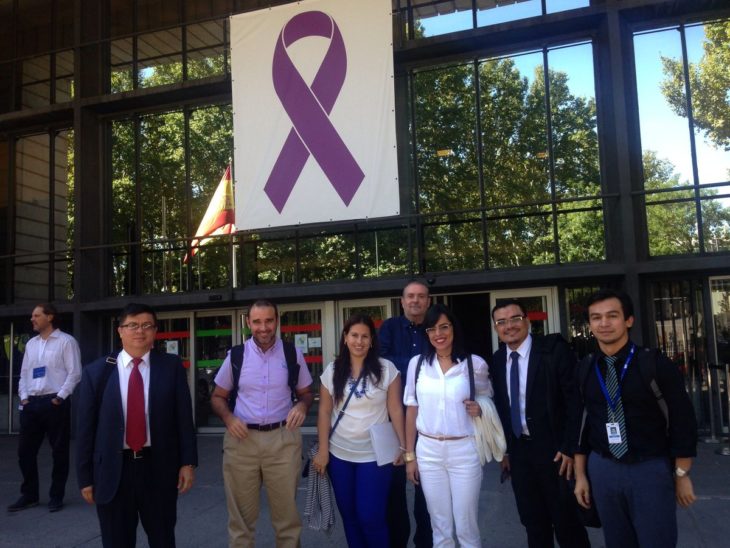Representatives of the Ministry of Health, the Social Security Institute, and the Institute for Access to Public Information of El Salvador learn firsthand about Spanish experience in the management of hospital medical records

When Margarita went to her Salvadoran Social Security hospital for a periodic check-up in her type-2 diabetes treatment, her medical record had vanished. After hours of fruitless searching, she went in to see her doctor with a temporary record (blank) for him to prescribe the corresponding medications. In the absence of medical information, the doctor told her that he could not prescribe glimepiride, one of the two key medications in her diabetes treatment, until current test results were available to assess her clinical situation. Margarita had to wait nearly a month to obtain new test results, without receiving adequate pharmacological treatment in the meantime. After nearly three months, the record was finally located, oddly enough, in the archive of deceased patients.
Proper management of medical records is critical for improving patient treatment and the exercise of patient rights, but also for the health system to function effectively and efficiently. This, however, is a gargantuan task that requires enormous challenges to be faced — such as lack of storage space and shortages of personnel and budgetary resources — while at the same time guaranteeing proper protection of patients’ personal data. On the other hand, the complex transition from the paper to the electronic medical record can be achieved gradually.
Aware of the absolute necessity of addressing this problem in El Salvador, the Institute for Access to Public Information (IAIP), the Ministry of Health (MINSAL) and the Salvadoran Social Security Institute (ISSS) have joined forces in order to lay the foundations of a new era in the management of medical records in the public health sector of the Central American country.
The EUROsociAL+ Programme is accompanying El Salvador in this reform process. As the first step, from 25 to 28 September, representatives of the three institutions visited Madrid to learn about the progress and challenges Spain has experienced in this area. For one week, they had the opportunity to exchange experiences and lessons learnt with the Ministry of Health, Equality and Social Services; the Castilla-La Mancha Health Service (SESCAM); Hospital Clínico San Carlos of the Community of Madrid; the Sub-Directorate General of State Archives of the Ministry of Education, Culture and Sport; and the Spanish Data Protection Agency. The visit included a trip to the archives of Hospital Clínico San Carlos and the Central Archive of the State Administration in Alcalá, as well as a presentation on the lessons learnt in the electronic medical record project in Tunisia led by FIIAPP and funded by the European Union.
This activity represented a first step towards promoting inter-agency dialogue in El Salvador, advancing in the creation of operating instructions and new regulations, and promoting the cultural change necessary to improve the quality of healthcare in the Central American country.
Borja Díaz, técnico senior de Gobernanza Democrática / Senior Officer of Democratic Governance. EUROsociAL+



